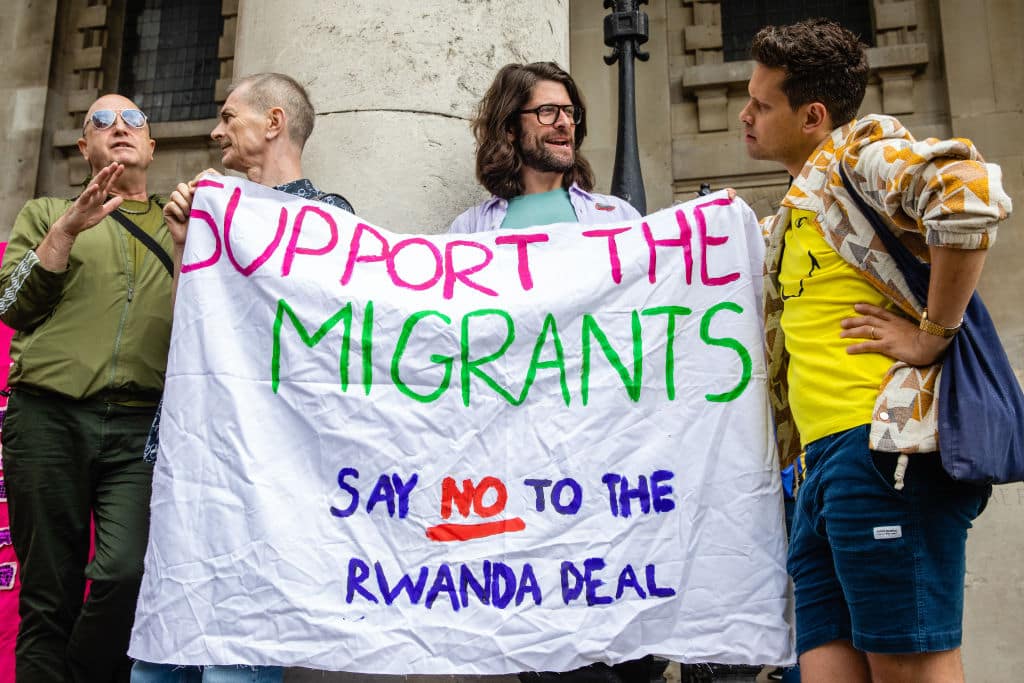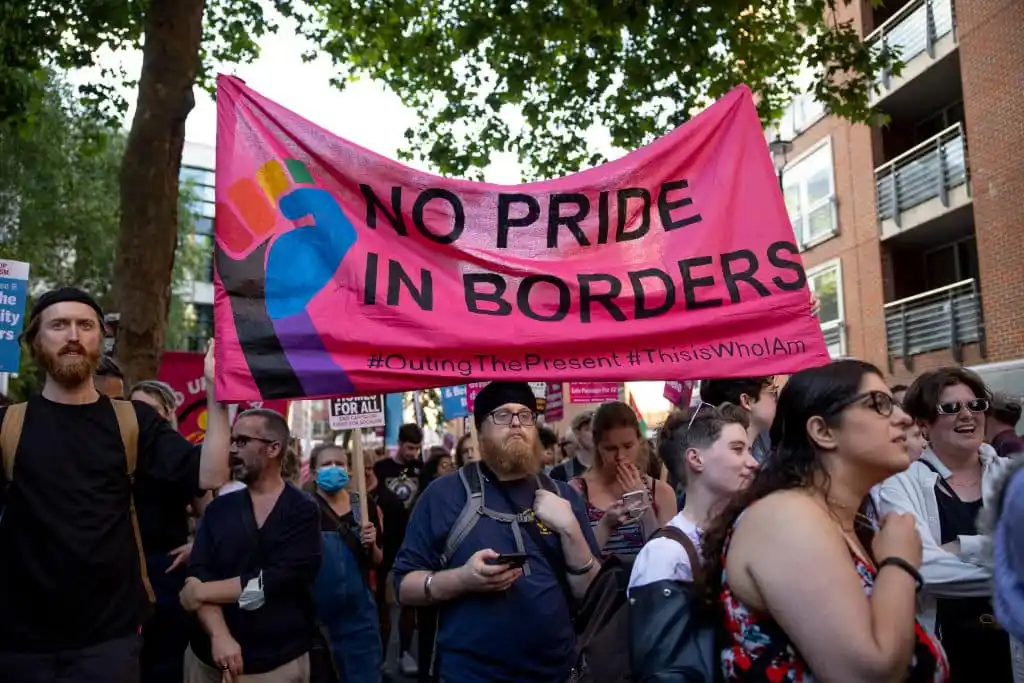Florida Puts Raging MAGA Moms on Book-Banning Council
In the name of “curriculum transparency,” Florida’s Republican-controlled state government has appointed several anti-gay and anti-mask conspiracy theorists to take charge of a new effort at public schools: banning books.
This hastily assembled censorship council—tasked with retraining public school librarians to abide by new restrictions—is the latest ploy in Gov. Ron DeSantis’ crusade to upend the state’s education system.
But the council was also staffed under suspicious circumstances, with the state Education Department ignoring its own call for official candidates from local school districts and instead filling most of the slots with right-wing activists who have a history of proposing book bans. One was even nominated by a religious activist with close ties to the DeSantis administration a week before the department publicly called for candidates, according to government emails, hinting at secret coordination between them.
“It calls into question the process that the Florida State Board of Education is trying to implement. It raises significant transparency questions,” said Megan Uzzell at Democracy Forward, which obtained those government emails.
While the “parent workgroup” is only getting started, the Education Department’s recent meeting in Orlando last week revealed how the state is positioning itself to spread those controls from school libraries to teachers’ classrooms.
As the meeting ended, Clinton McCkracken, the head of the Orange County teachers union, made a comment to another parent: “I don’t know what to tell my teachers.”
The recent episode began with an Aug. 12 memo from Education Department senior chancellor Jacob Oliva. The memo called for local school districts to nominate “parents of students in K-12 schools for representation on a workgroup”—one charged with creating mandatory “training” that would guide librarians statewide on how to follow new library censorship rules signed into law by Gov. DeSantis earlier this year. School districts had a week to submit the names of qualified nominees.
The Education Department passed on nearly 100 potentially qualified applicants with relevant experience, records show. In Brevard County alone, it ignored the five submissions made by the bipartisan local school board, including the nomination of a former elementary school assistant principal, the director of Eastern Florida State College’s tutoring centers, and the administrator of a local scholarship fund.
Instead, the department went with a woman who nominated herself: Michelle Beavers.
While other candidates have teaching experience, Beavers’ bona fides consist of right-wing activism. She leads the local chapter of Moms for Liberty, a MAGA contingent that has antagonized her school board for years over mask mandates—and allied with DeSantis for his recent attempt to outlaw critical race theory in schools.
ince then, Beavers has been actively seeking to ban books. In March, she emailed a Brevard County assistant superintendent about what was then the 19th title on her growing list of targets: the coming-of-age comic book This One Summer,which mentions lesbians and shows teenagers engaging in typical crude humor.
Beavers thanked the assistant superintendent for her “efforts to get this material vetted and hopefully out of our minors hands.” In other emails, Beavers identifies herself as the “head of the Library Book Committee,” explaining that she built a “comprehensive report” that reviews all of the “offensive items” in certain books. She warned about “books that are porn” and opposed a parent opt-out program in a specious and sweeping statement full of grammatical errors.
“These books violate the law, it’s a felony. So why would you try and still defend there [sic] existence by letting parents opt out?” she wrote.
Beavers and the other three appointed parents are now in a working group that is finalizing the presentation that will be used to train school librarians statewide.
The Sanctity of DeSantis
The marching orders come from the top. In March, Gov. DeSantis said parental rights should be at the helm of a child’s education.
“We are not going to let politicians deny parents the right to know what is being taught in our schools. I’m proud to sign this legislation that ensures curriculum transparency,” the governor said in a statement at the time.
“While teachers, school administrators, and school board members have a tremendous amount of authority over what and how our kids are taught in school, at the end of the day, parents—not schools—are responsible for raising children,” added Florida state Republican Senate Leader Wilton Simpson.
“The state has created a situation that is harming students.”
— Clinton McCkracken, head of the Orange County teachers union
Last week’s Education Department meeting was the latest example of the encroaching restrictions, when it unanimously voted to implement rules guaranteeing so-called “parental rights.” The department determined that parents must be notified if their child uses a school restroom or locker room that does not correlate with the child’s sex assigned at birth.
Meanwhile, censorship measures that initially targeted school libraries were extended to individual teachers’ classroom collections, which must now “be reviewed by a district employee holding a valid educational media specialist certificate,” according to Florida’s state website. The board also decided that educators could lose their teaching certifications if they do not comply with the state’s Parental Rights in Education law.
Bad Apples
At Wednesday’s meeting, state education board member Grazie Pozo Christie, a senior fellow for The Catholic Association, cited the need “to hold teachers accountable” for those she called “some bad apples.”
Teachers already suffer through poor working conditions, low pay, and staff shortages—being subject to state review of classroom books adds even more to their plates, McCracken, the Orange County teachers union head, said in an interview with The Daily Beast.
“The board voted… to require that all of those books have to be cataloged now. Which, of course, is an arduous task for teachers who may have hundreds of those books. So, in effect, for a lot of those teachers, that means that those classroom libraries won’t be available to students any longer until we can figure out how to manage that,” he said. “Laws like this are created to demonize public education.”
McCracken criticized how the meeting was scheduled in a way that would conflict with teachers’ work schedules and low salaries: 9 a.m. on a school day at a hotel with a hefty price tag for paid parking.
Despite emotional testimonies from concerned teachers, the board didn’t budge.
Teachers who have taken years to build their classroom book collections—available to students who can’t always take solo trips to the library—will now be burdened with the task of indexing their own shelves for so-called content restrictions, McCracken said.
“The classroom library has been an amazing tool for teachers to be able to inspire kids to read,” McCkracken said.
“So what are those kids going to do if the libraries aren’t there?” he asked. “They’ll have less access to important material that would inspire them to read and to learn. The state has created a situation that is harming students.”
Book Burning Training
The little-known and quickly assembled “work group” developing this book ban training is a pivotal part of this effort—which makes it all the stranger that the Education Department engaged in what critics are calling a bad faith effort to staff it.
Two parents who applied for Florida’s Department of Education media workgroup told The Daily Beast they raised their hands because they were interested in the books being challenged in schools.
“I’m very familiar with the research of psychological research for children, where it can be disruptive to introduce some of the pornographic material early or over-sexualized material early,” said Hillary Earle, who applied for the media group after seeing an announcement on the neighborhood app NextDoor.
Despite her years of academic and mediation accolades, as well as an endorsement from a school board member, Earle didn’t know she wasn’t selected for the media workgroup until her interview with The Daily Beast.
“This is the first I’m hearing of it,” she said. “I haven’t received anything: a phone call, an interview, anything.”
By contrast, Scott Rooke received a Brevard County school board member endorsement after expressing previous interest in children’s reading material. But he only discovered he wasn’t selected by way of a blog, Account Baloney. He immediately recognized the names of two Moms for Liberty members who did make it: Michelle Beavers and Jennifer Pippin.
The parent-membership seems slanted from the start when I just saw those two names,” he said.
The woman that took his place, Pippin, was not officially recommended by a school district. Instead, emails show, her name was submitted by Keith Flaugh, a childless conservative activist whose “Florida Citizens Alliance” has closely advised DeSantis for years on reforming public schools to combat “cultural Marxism” and “LGBTQ values” in favor of “Judeo-Christian family values.”
When discussing proposed training for librarians and media center employees at a recent working group meeting, Pippin, who drove and sat in her car for the duration of the meeting, chimed in to remind everyone, “I’m not a media center specialist,” noting she didn’t even understand some of the abbreviations being used in the mandated materials she intends to craft.
A third MAGA mom now on the book banning work group is Jamie Merchant, a member of “Mamas for DeSantis” whose summer reading included the book Crimes of the Educators, a call to demolish American public schools written by two known conspiracy theorists—one of whom runs a website that warns about “cancer deaths from the COVID jabs.”
Contentious Consensus
By all accounts, the panel tasked with developing the oncoming mandatory librarian training for the Education Board is a slow-moving train wreck. When the group reviewed the PowerPoint slides at their recent meeting last week, the department’s director of instructional materials, Amber Baumbach, punted on presenting what would obviously be the most controversial and contentious material.
Faced with questions about disagreements, the group director revealed that the Education Department might soon get two versions of the presentation—in what critics like Stephana Ferrell with Florida Freedom to Read Project expect to be a sane version and one that caters to the crazies. The DeSantis administration—which has already spent considerable energy attacking “woke” culture—would decide which option to take.
“If we can’t reach a consensus…it is possible for us to route two different versions of the training,” one of the options that we have is to provide two different points of view,” Baumbach said.
The working group is scheduled to meet again publicly this coming Tuesday, when it will present the slides that address what these conservatives deem offensive material—and is expected to spark more protests from worried parent groups already battling these book bans, like Florida Freedom to Read Project.
“The goal is to have the most conservative counties determine what the rest of the state has access to. It’s to allow a conservative ideology to hold rank over the rest of us,” said the project’s co-founder, Stephana Ferrell. “That’s what all of this is about. The attack on teachers, the banning of books—they need parents to not trust public education, so that they’re fed up and take taxpayer dollars into the for-profit education sector.”


